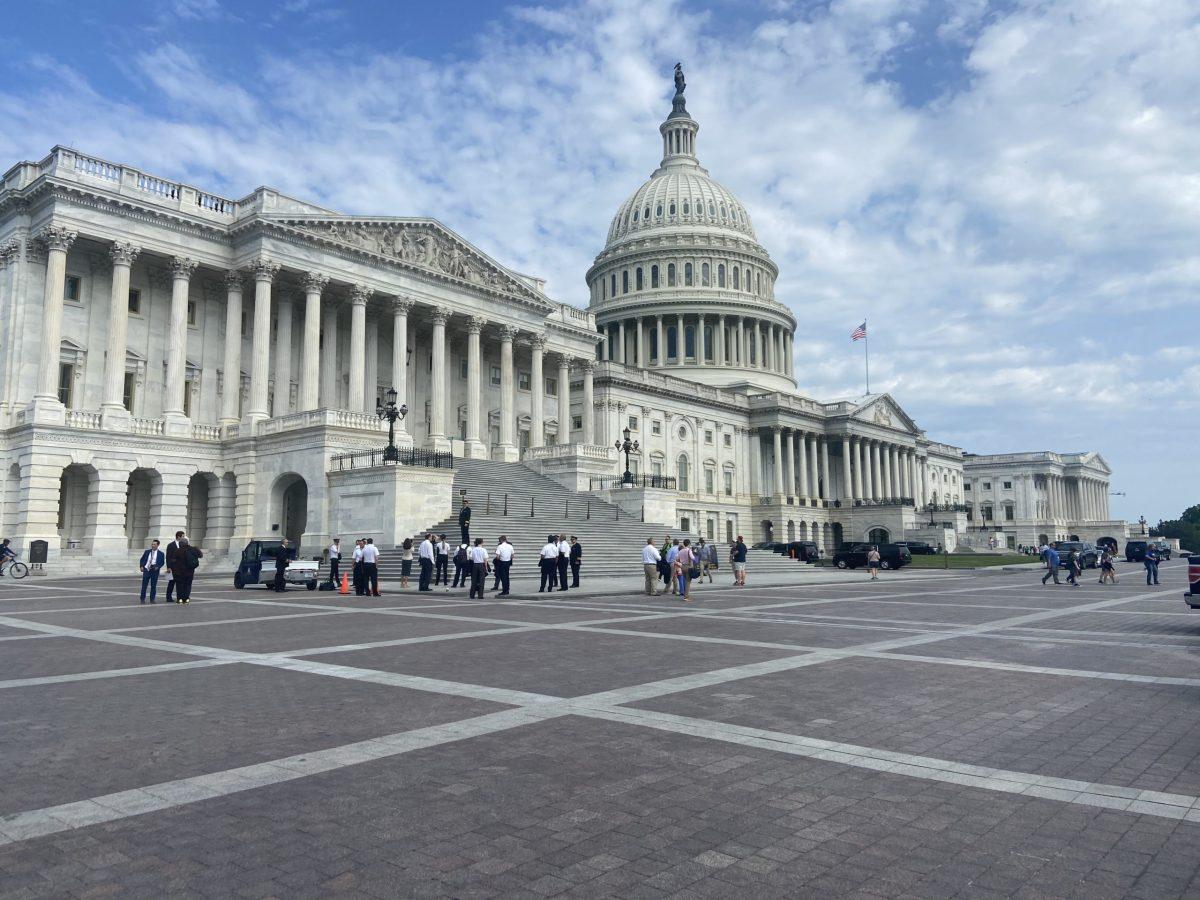Photo by Renzo Moran ’24
By Henry Walters ’25
A poll conducted by Politico and Morning Consult found that almost two-thirds of American voters support a ban on stock trading for members of Congress, making it an issue that receives support from both sides of the aisle.
If it is so widely supported, then why has little been done to address the pervasive problem? The answer is that with little external pressure, legislators are extremely reluctant to stop enriching themselves off of non-public information.
On Sep. 28, 2022, the Combatting Financial Conflicts of Interest in Government Act was introduced to the House of Representatives. According to The New York Times, the bill would, “eliminate most financial asset trading for lawmakers, their spouses, dependent children, senior staff aides and federal judges, including Supreme Court justices.”
The bill would allow those targeted to hold investments through blind trusts. Blind trusts are financial holding structures where the owner does not know how their assets are managed.
But on Sep. 29, it was announced that debate of the bill would be pushed back until after the midterm elections that happened this year.
This delay will probably seal the bill’s fate. Representatives will have much less incentive to regulate themselves after their elections.
The bill itself was questionable as a loophole allowed a congressional ethics committee to determine whether trusts were actually blind or not. Congressional ethics committees are known for failing to hold lawmakers accountable in the past.
This is why a new bill is needed, one that more forcefully and broadly prohibits trading of stocks and other types of investments for government officials. The legislation would extend not just to lawmakers and those around them, but also to officials across all government agencies who have access to privileged information.
On Oct. 19, 2022, The Wall Street Journal reported that a number of officials in federal agencies made suspiciously well-timed stock trades in the days and weeks leading up to the COVID-19 pandemic in March 2020.
These officials, notably some in the National Institute of Allergy and Infectious Diseases, had information about COVID-19 and its probable effects well before the general public did. They ended up insulating themselves from the large stock market losses that soon came, and in some cases even profiting.
The officials in question have yet to be punished.
This example shows that new legislation must expand to more than just Congress. The Supreme Court and high ranking officials at agencies in the executive branch must also be included, because they all have access to information that the rest of us don’t.
Now that the midterm elections have passed, the issue will likely be conveniently forgotten, as lawmakers delay the debate of the already inadequate bill that has been introduced.
This is not a Republican or Democratic concern, but simply an anti-corruption one. Americans need to put more pressure on their elected leaders to further address this issue, because we know that they will not regulate themselves or their allies throughout the government.
Brophy students can push for change in multiple different ways. They can post on social media promoting new legislation. They can also attend public meetings with or write to their representatives. For those at or above the age of 18, however, voting for lawmakers who advocate for a new ban is the most effective method.















